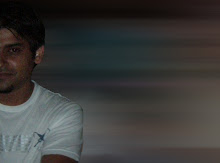Pakistani journalist Imtiaz Alam tells TUSHA MITTAL that Indian and Pakistani media mirrored each other in hatred
Secretary General of the South Asian Free Media Association, and Editor of the South Asian Journal, Imtiaz Alam, says media should rise above national identity and unite, not demonise other states
You’ve written that during the Cold War, the media was instrumental in fanning nationalisms and demonising the other side. Did the coverage of the Mumbai attacks by Indian and Pakistan media do the same?
I am very disappointed with the coverage of the Mumbai attacks. The Indian media jumped to conclusions and displayed national jingoism. The Pakistani media went a step ahead by blaming India itself. They thought India had manufactured the event and it was a big conspiracy to take away Pakistan’s nuclear arms. A South Asian union is the ultimate goal we are pursuing. We build it brick-by-brick and one terrorist attack demolishes the entire building. I feel disgusted at the role of media in both countries in building and furthering hate.
What role do Indian and Pakistani media play in the idea of a united South Asia?
The media can either bring the states to conflict, or it can create space for reconciliation. The footage you take, the way you sequence the events, the way you ‘balance’ and treat your story, the way you conduct your so-called debates and select participants, all this colours your story. You can choose what colour it will have. The event is the same, but media in two different countries report it differently. In times of conflict, this becomes important. The media should not take sides with nation-states. There should be guidelines about how not to report in a conflict situation.
Ideally, how should Indian and Pakistani media have covered Mumbai?
Editorially, the media should have taken the position that both countries should join against the common enemy. But the media became an instrument in the hands of the terrorists who must be laughing at us. Both countries should be cooperating at all levels, even at the level of the media. We have been fighting for media freedom, but now I feel there should be some self-imposed checks so that the media does not push countries to war.
Does the media have enough power to either prevent or provoke war?
The media can play havoc with a situation and swing the public from one end to the other. The media is playing havoc right now. The Pakistani media is pushing for a confrontation with India. On day one of the Mumbai attacks, the Indian media gave the judgement that the culprit is Pakistan. Here, we feel threatened by the extremists too. I have never felt such a great threat in my life as I am feeling now. The media in both countries brought the governments under pressure to take stronger actions that could lead to war. They argued that a diplomatic approach would be seen as weakness. Terms like surgical operations, limited war and, on Pakistan’s side, even nuclear war, were being heard often. I’m about to faint watching this demonising coverage. It is traumatic.
A specific example of when you thought the media had crossed the line?
In Pakistan, they brought scientists to ask how capable Pakistan’s nuclear weapons are of destroying Indian cities. Phrases like ‘limited war’ mean nothing. One side can see it as a limited war, and the other can perceive it as a full-scale war on them. Once you start using these terms, you don’t know where to draw the line. In a combat situation, we should not be using nuclear terms, or demonising clichés. For example, we do not use the terms Indian-occupied Kashmir or Pakistan-occupied Kashmir. We use Indian-administered Kashmir and Pakistan-administered Kashmir.
What steps should be taken to ensure coverage that encourages peace, not war ?
When the dust settles, I plan to hold a joint Indian and Pakistani media conference of reporters and editors to discuss how we behaved in this crisis. There should be accountability. We should have records of the coverage and point to what went wrong. We should bring the so-called big guns of media in the dock of public opinion.







